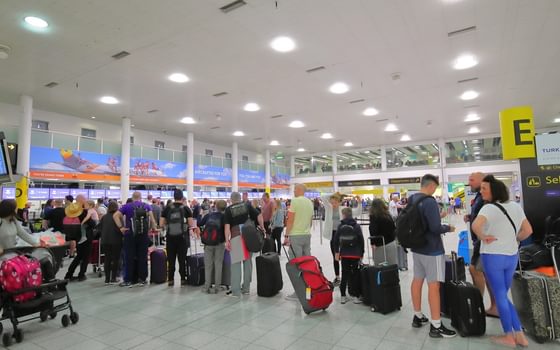The aviation industry claims more flying is essential for the economy, the numbers say otherwise
Latest data shows that in 2023, there were 3.9 million fewer business air trips compared to 2019
24 May 2024
This week I attended an event the aviation industry hosted in parliament aimed at convincing the next UK government of the “crucial role of the sector in underpinning economic growth”. The decline of business use of air travel undermines their argument.
New data released by the Office for National Statistics last week highlights the problem with the aviation industry’s claims. The data, from 2023, provides a useful benchmark because by then the economy was larger (even after considering inflation), by around 1.8%, than it was pre-pandemic (2019). What this means is that the recovery was complete. All things being equal, we would expect business use of air travel therefore to have re-bounded. Indeed, we might have expected a bumper year for business travel, as companies caught up on trips they couldn’t make under Covid restrictions, the release of pent-up demand. No such recovery has occurred.
In fact, in 2023, there were 3.9 million fewer air trips made for business purposes, a decline of 29% since 2019. Alongside this, business spending on air trips declined by £2.9 billion (-22%). This new data highlights an acceleration in a pre-existing trend, described in NEF’s report last year, of ‘decoupling’ of business air travel and the economy.
The figure below shows that the number of corporate air trips per million pounds of real GDP had been declining steadily from a peak of around eight flights per £million in the year 2000, but has crashed following the pandemic to a new low of only four flights per £million. Airline executives are well-aware of this phenomenon, and indeed have been adjusting their business strategies accordingly, but this hasn’t stopped the industry, and particularly airports, from making grossly exaggerated claims about the business benefits of air travel growth, and particularly airport expansion.
Figure 1: The number of business air trips per £million GDP have fallen since the pandemic
Interestingly, new polling data shows it’s not just me who is sceptical of the industry’s claims. The public are too. Recent polling of six Western European countries, including the UK, by More in Common, and analysed by NEF, shows a whopping 74% of those who expressed an opinion were more inclined to think that “the economy can grow without people needing to fly more” compared with just 26% who leaned towards flying being “essential for economic growth”. Interestingly, even those who travel by air for business weren’t convinced, with 60% leaning towards the economy being able to grow without people needing to fly more. Perhaps most revealingly, just 19% of business travellers reported that ‘if they didn’t fly for the next 5 years’ it would ‘limit their ability to do their job properly’ – hardly a ringing endorsement of air travel’s importance to business.
The trend away from corporate air travel is at least partly (though not strongly) driven by environmental concerns and responsible business. Nonetheless, to deal with aviation’s colossal environmental footprint stronger government action is going to be required.
NEF has been campaigning for a frequent flyer levy as a means to tackle aviation’s climate impact in a just way. The policy is seen as fair by the public, with 47% supporting it as ‘very or somewhat fair’ compared with just 20% who see it as ‘very or somewhat unfair’. Many business travellers are among the most frequent flyers, yet interestingly, our polling analysis suggests this group are more likely than average to see the policy as fair, with 52% seeing it as ‘very or somewhat fair’ compared with 22% who saw it as ‘very or somewhat unfair’.
Frequent Flyer Levy
Business travellers | All | |
Very or somewhat fair | 52% | 47% |
Very or somewhat unfair | 22% | 20% |
Neither fair nor unfair | 21% | 21.8% |
Source: NEF analysis of polling conducted by More in Common
Whichever party forms the next UK government will, sooner or later, have to get to grips with the damage air travel is doing to the climate. The progressive steps made by business to move away from reliance on regular flying will make that job easier, proving that a rapid green transition can be delivered in a way which is also hugely beneficial to the health of the economy and society. Charting the right course with fair and effective policy making will invariably mean pushing back against industry propaganda and vested interests.
Image: iStock
Topics Climate change Transport






